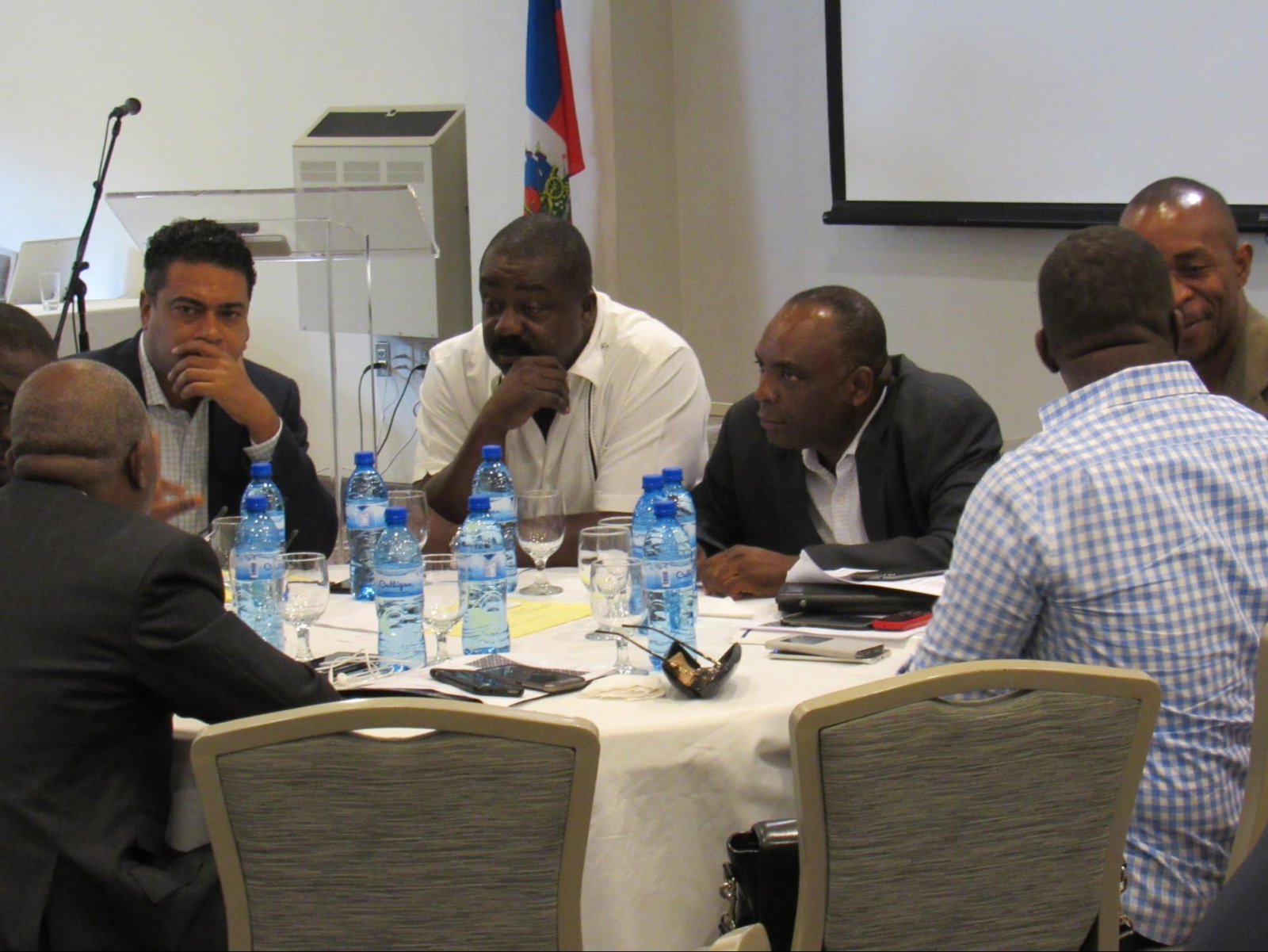
Members of the Chamber of Deputies discuss ways to update and improve the Strategic Development Plan for Haitian Parliament
SHARE
Days after Haitians went to the polls to vote on November 20, more than 130 members of the Haitian Parliament and staff met to evaluate the strengths and weaknesses of the institution and lay out a roadmap for moving forward.
The current and 50th legislature took office in January 2016, opening Parliament’s doors for the first time in a year. Delays in elections had resulted in the expiration of the terms of office of all but 10 senators in 2015. Since January, the country has been largely focused on completing Haiti’s presidential elections, which were held last fall but are being re-run due to allegations of fraud. As the process advances, Parliamentary leaders like the president of the Chamber of Deputies and the chair of the Committee for Planning and External Cooperation want to help the institution tackle the challenges it has faced this year and define its priorities before the 2017 session.

This workshop comes during a critical electoral period, but also during a new debate about the role of our parliament.
- Speaker on the session’s first day
The working session, held on November 24 and 25 and co-organized by NDI and parliamentary leaders, focused on updating a strategic development plan conceived by the last parliament.
Strategic plans are valuable tools Parliaments around the world have used to build consensus and momentum towards both legislative and institutional priorities. The Haitian plan focuses on three areas: the representational role of the legislative branch, the institutional capacity of parliament and the process of reconstructing the parliament building lost in the 2015 earthquake. During the sessions, which included presentations by Haitian and international experts such as Paul Dewar, a former deputy of the Canadian Parliament, discussions turned to:
- individual and institutional communications strategy,
- training and hiring qualified professional staff, and
- ensuring a functional design for the new Parliament building.
One of the major issues participants highlighted was the poor perception of parliament among citizens. Parliamentarians explained that voters often expect their representatives to be “development agents,” who provide jobs, fix roads, and respond to individual needs, whereas work at the national level for the benefit of the nation as a whole, such as passing legislation and representing constituent perspectives in the chamber, may not be recognized in deputies’ home districts. Trying to close the expectation and communications gap between members of parliament and citizens will likely loom large in the strategic plan.
Elected officials and staff alike are eager to see change. At the workshop’s conclusion, leaders announced that the next step in the strategic planning process will be merging suggestions that emerged from small group discussions and the existing document to create a new and updated strategic development plan for 2017 onward. Then, leaders will aim to convene another session to get Parliament’s feedback, and eventually, its stamp of approval. As Mr. Dewar of Canada pointed out, a clear implementation plan with a strict calendar will be key to transforming the document into action.
These activities were made possible with funding from the United States Agency for International Development.
Published December 23, 2016


